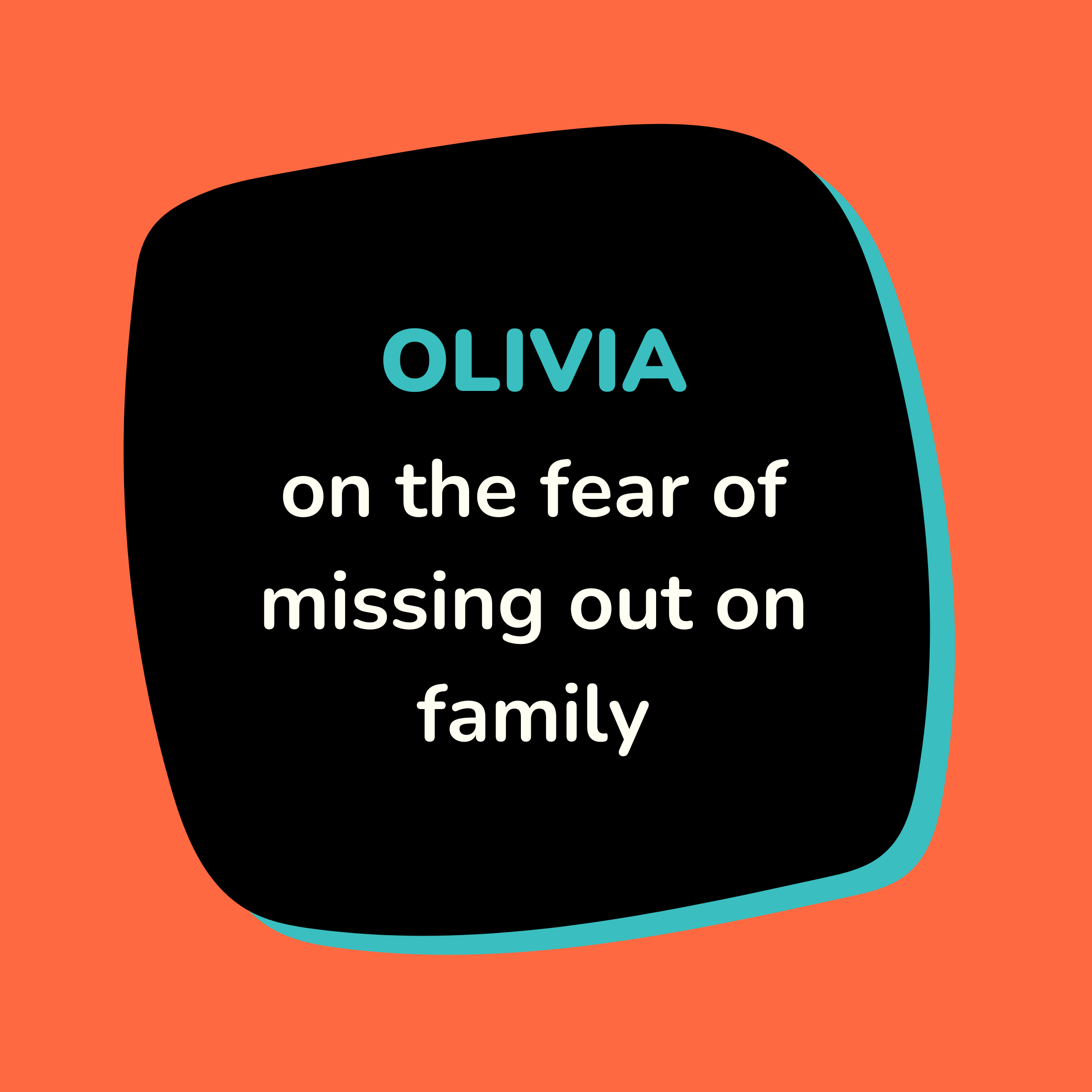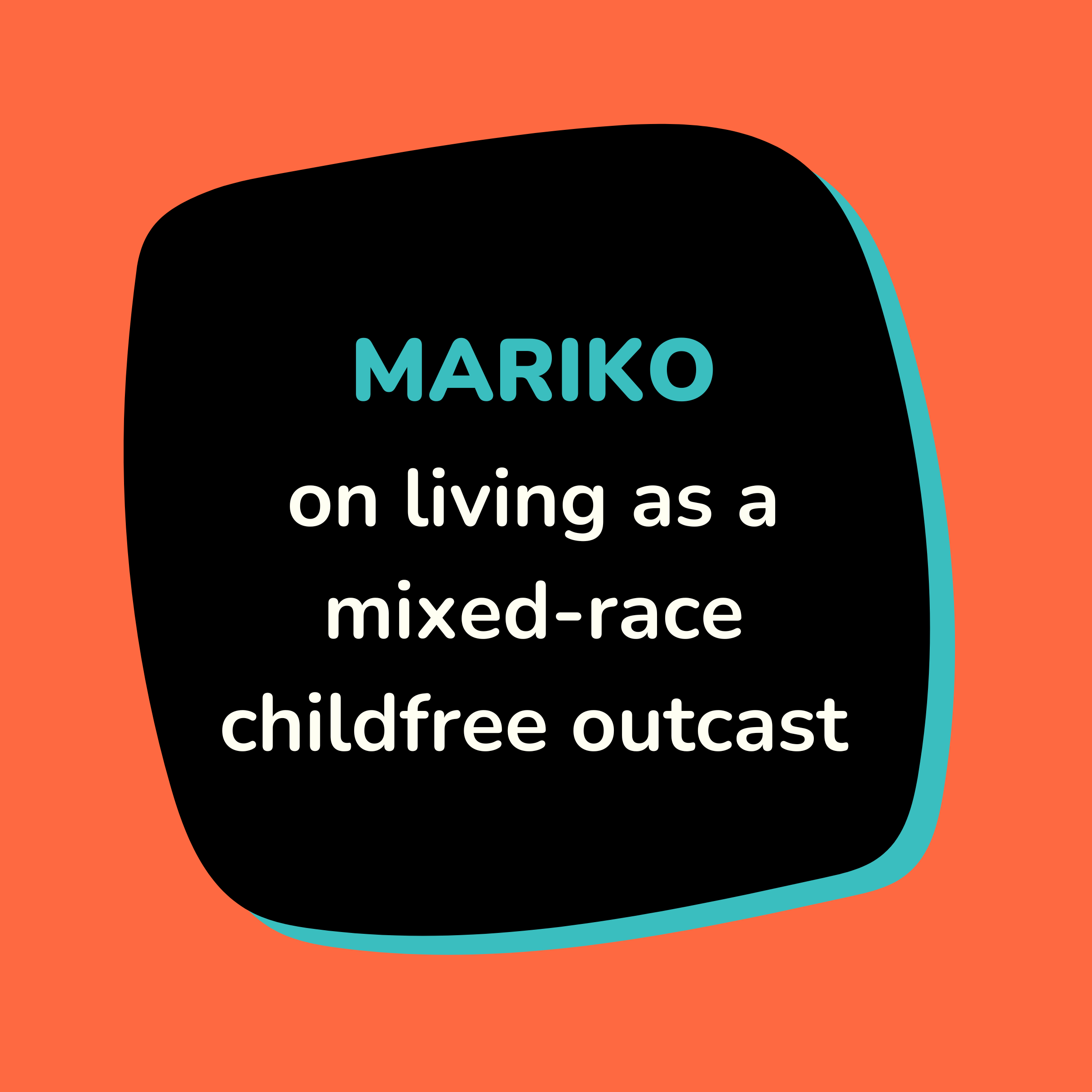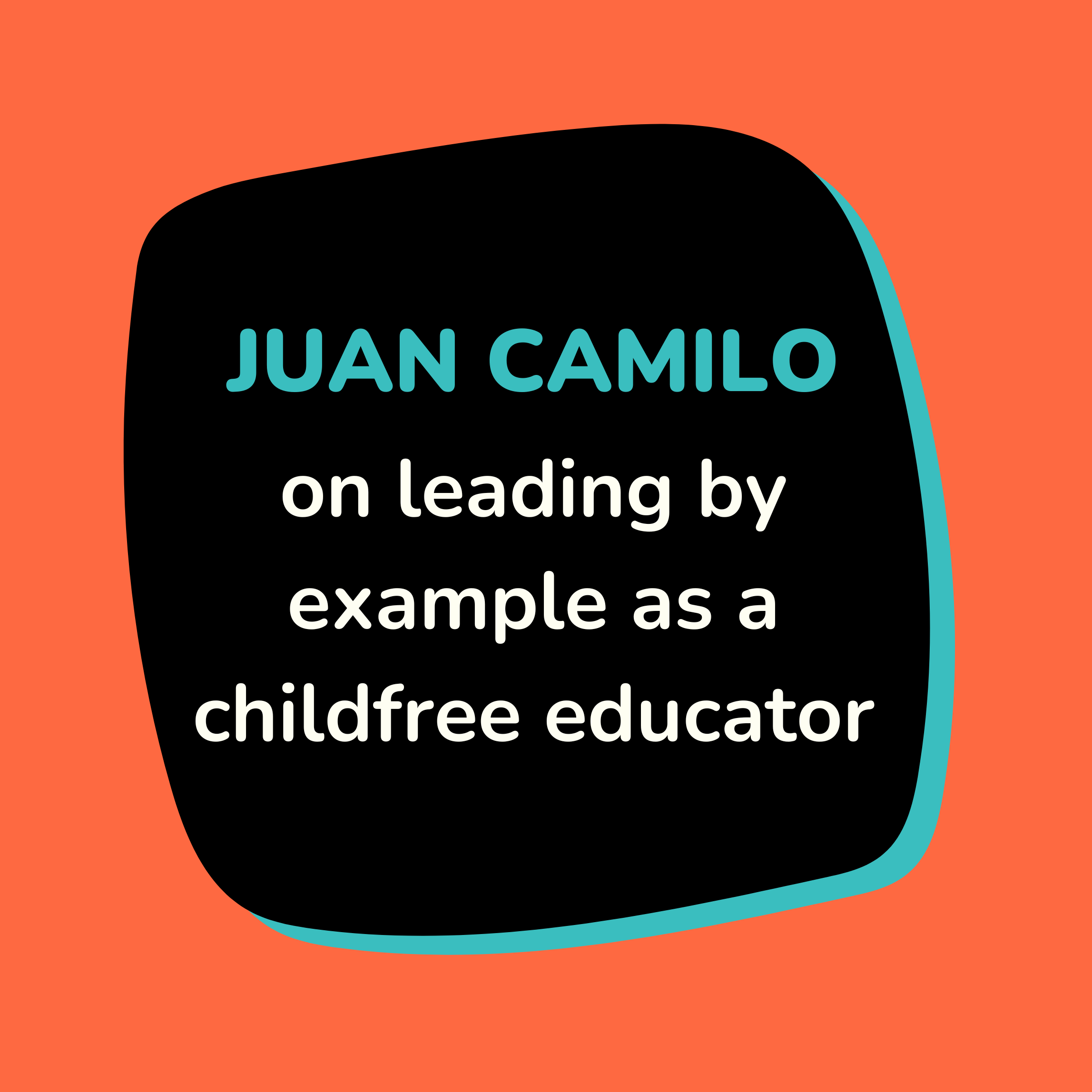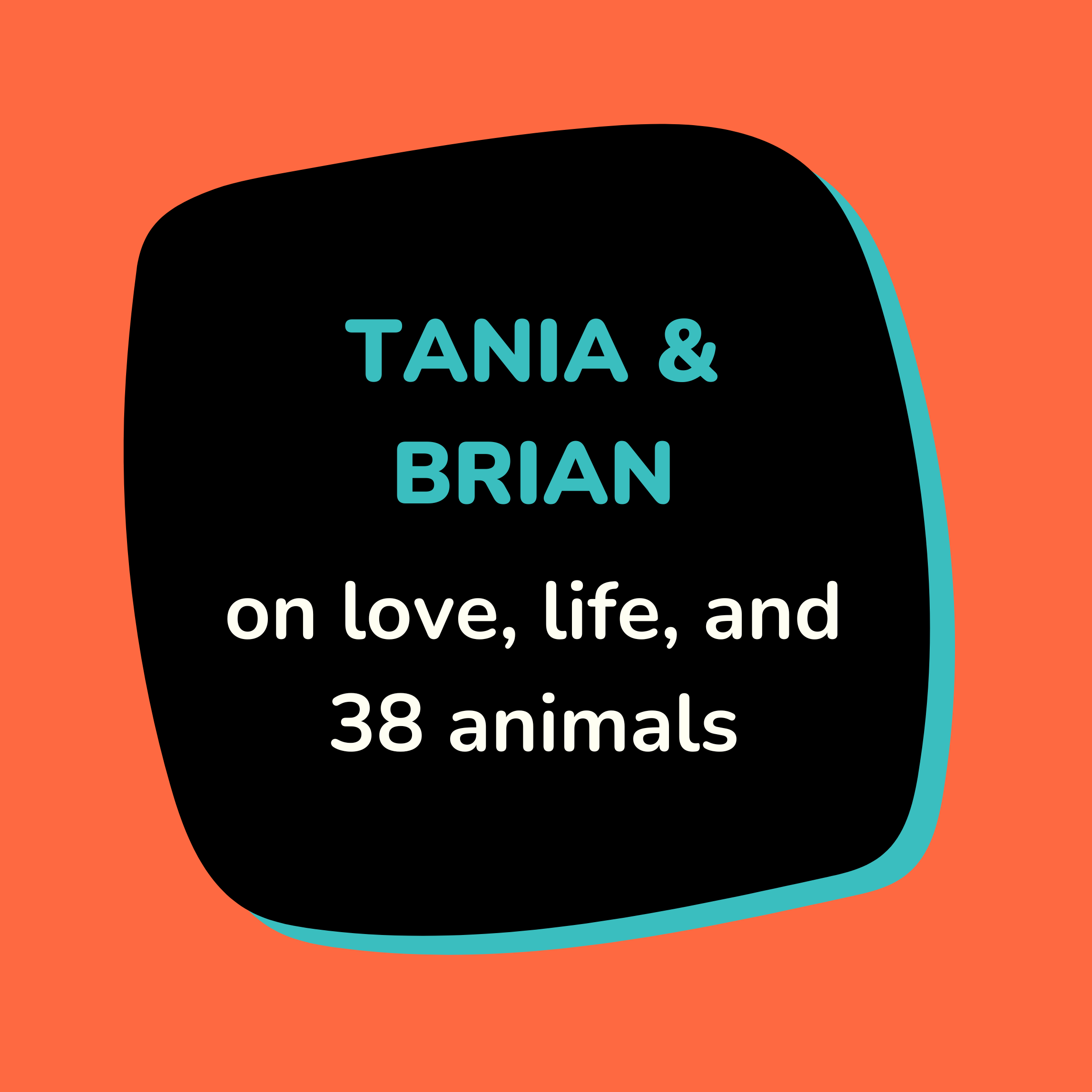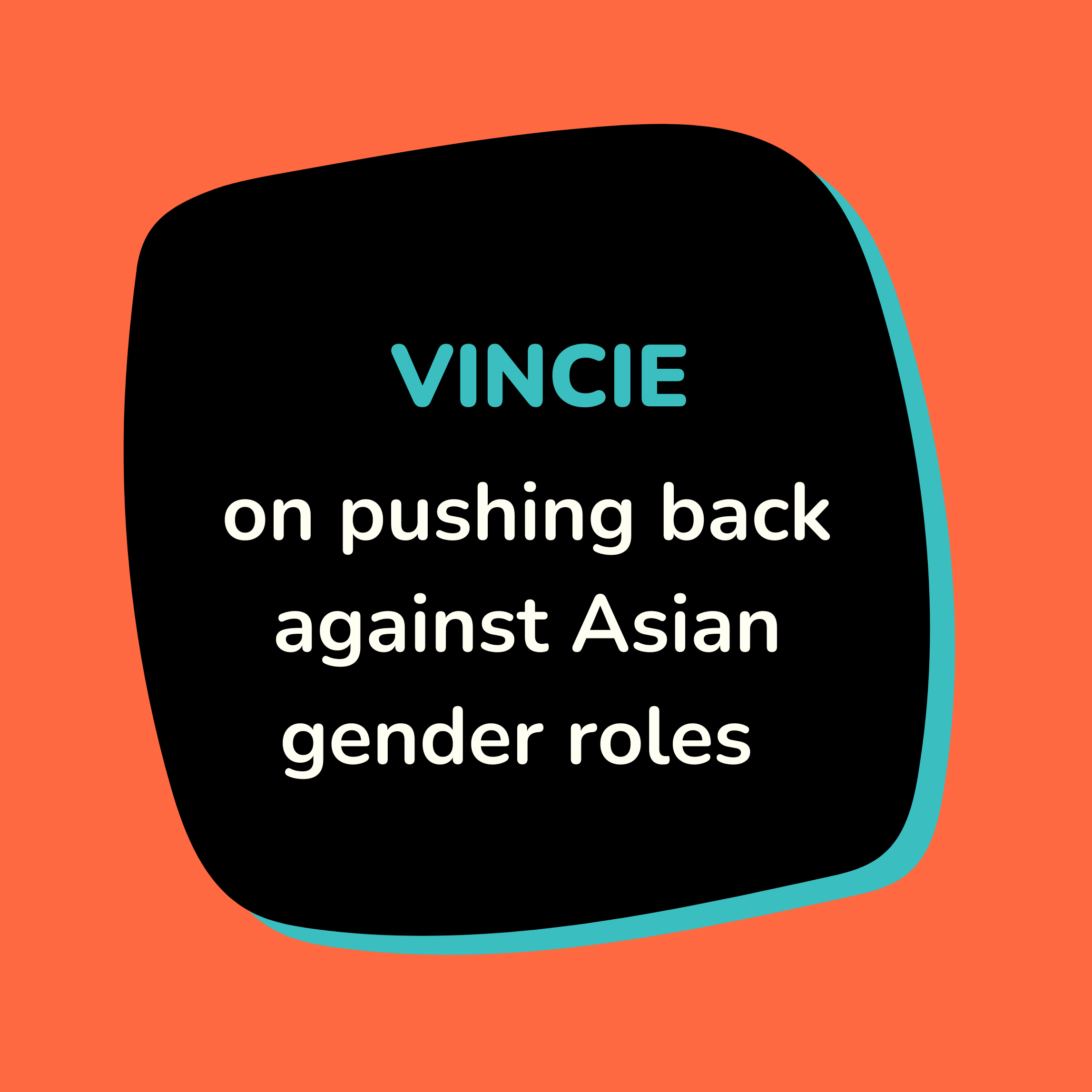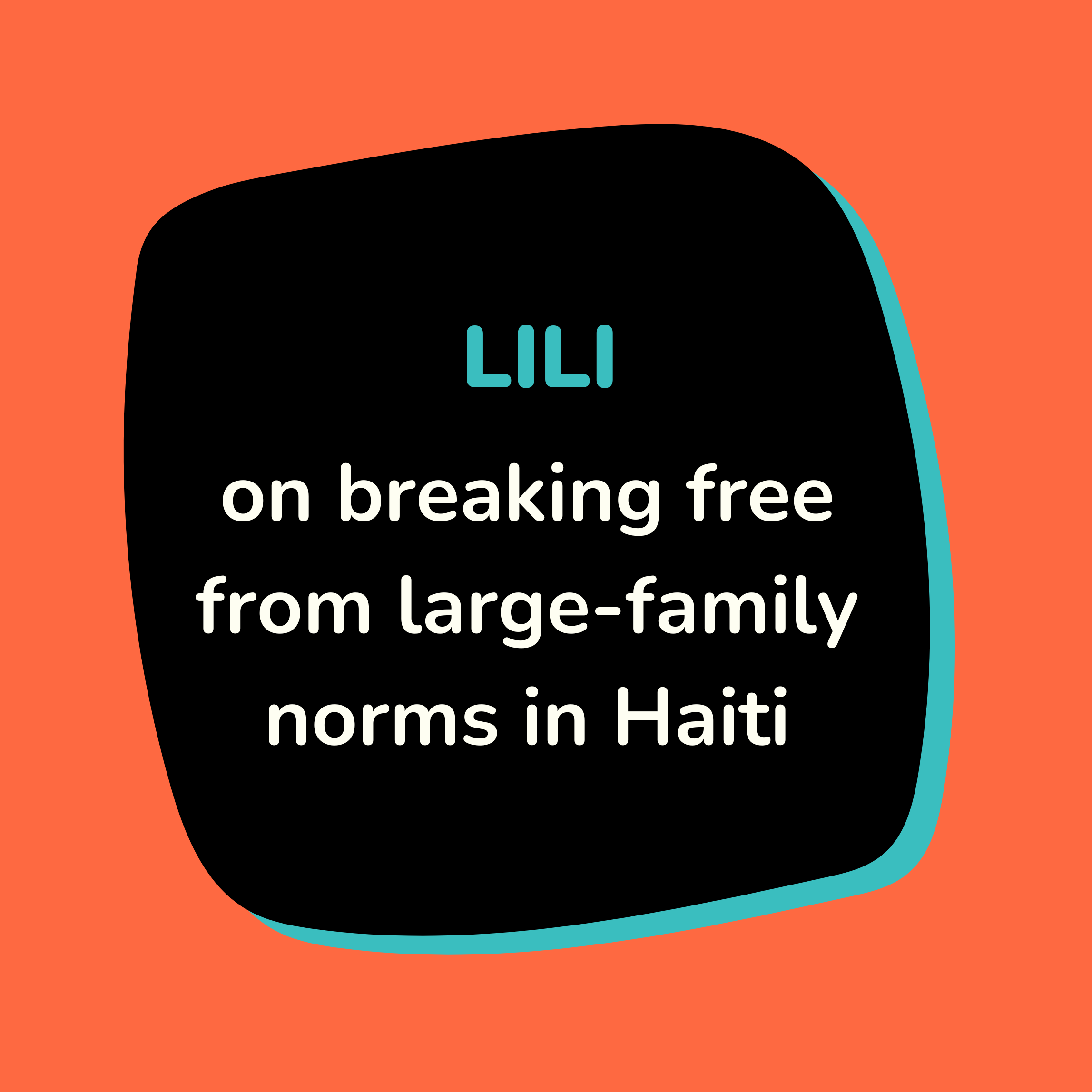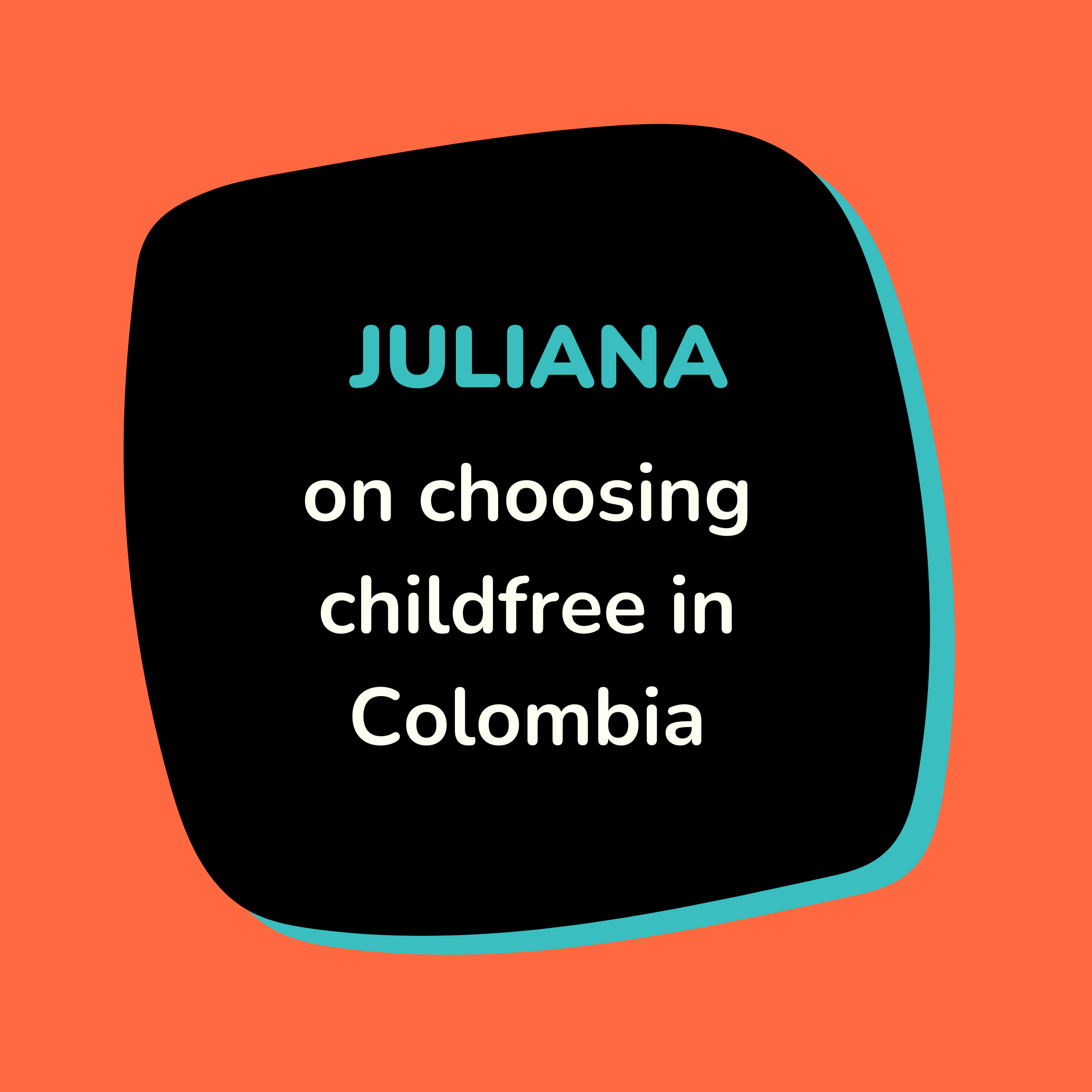Olivia - on the fear of missing out on family
Olivia and her husband are both fairly certain they don’t want biological children, but they deeply value family and are afraid they’ll miss out. The challenges of the adoption process have thrown them into a state of uncertainty about how to have the family they crave, while staying true to their convictions.
-
Olivia (00:00):
I think that it's been a journey of sort of trying not to engage with the question, because I do find it scary. And I think there's a fear that I have around making a decision and the finality of that and regret either way I decide. That, sort of coupled with my concerns about overpopulation, concerns about environmental impacts, et cetera. I think there's been certainly some recognition that I am ambivalent.
Nandita Bajaj (00:35):
That was today's guest, Olivia. Hello everyone, and thank you for joining me on this journey. My name is Nandita Bajaj and I'm the host of Beyond Pronatalism, Finding Fulfillment with or Without Kids, an interview series in which through intimate conversations with women and men from diverse backgrounds, I explore how they are courageously and creatively navigating pronatalism - the often unspoken pressures to have children, whether from family, friends, or the culture at large. In each episode, I dive into personal stories with people who are forging unconventional pathways to fulfillment, including redefining what family means to them, whether that means being childfree or childless, having biological kids, adopting or fostering children or animals, or creating close-knit communities of friends and loved ones. Hi Olivia, and welcome to the show. It is so wonderful to have you with me today.
Olivia (01:35):
Thank you so much for having me. It's a pleasure to be here.
Nandita Bajaj (01:38):
And Olivia, I was really pleased to read the story that you sent me and one that isn't allowed a lot of space in culture, which is a story of ambivalence, someone still trying to figure out whether or not to have a biological child. I'm really excited to dig deeper with you about that. So to begin, could you please share a little bit about yourself to introduce yourself to the listeners?
Olivia (02:09):
So I currently live in Connecticut. My husband is Australian and we met in Sydney. And so I've got kind of half my life in Sydney, half my life in Connecticut, spent about 11 years living in Sydney and now I'm based in Connecticut and we're sort of figuring out a couple international logistics, given visas and green cards and citizenship. I'm in my early thirties and I work for a nonprofit and I work out of the Connecticut area.
Nandita Bajaj (02:42):
Amazing. And before we get into your personal story, I'd love to hear about your general upbringing and how pronatalism showed up both within your cultural setting but also within your own personal family life.
Olivia (02:59):
So I would start by saying I feel quite lucky in that I've never experienced from those close to me overt pronatalism pressures, but I very much recognize that those pressures do exist in a much more subtle way. I grew up with a very, very close nuclear family, very small family, very close to grandparents, very close to parents, and nobody ever said to me, you will have children or you must have children, but there definitely has always been an assumption that that would be the path. And I felt that in a number of different ways, just in the way statements are made of 'one day when you're a mother' or 'when you have kids'. And I have still been very cautious about the ways in which I engage with that, recognizing that especially for parents and grandparents, there can be a real hope around having grandkids, great grandkids in the world.
(03:58):
And so I have always felt sort of a bit of responsibility around recognizing that all of that kind of sits on my shoulders because I know for certain that my brother won't have kids. He's been very clear about that. So I felt them in subtle ways, but also growing up just in the world that we live in, I mean this gets more to today as opposed to my childhood, but the political dialogue commentary that we have from JD Vance as an example. I think that there's sort of always been this pressure that I've picked up on in a much more subtle way around me.
Nandita Bajaj (04:32):
Did you ever growing up have a sense that this was an inevitability or did you think that you always knew that this was a choice?
Olivia (04:41):
It's such a hard question to answer because I think it's been one of those things that I have put off thinking about because I didn't fully recognize, I think to answer your question, I did think it was an inevitability and I thought that I would eventually get to a point of being excited about having kids. And I think one of the first moments I really thought about it was when I was 16, I was diagnosed with polycystic ovarian syndrome and the doctors shared that it would likely be more difficult for me to have kids and that I probably would be able to but might need to look into fertility treatment, et cetera. And I told people it wasn't something that I was hiding and people kept being like, oh my gosh, I'm so sorry as if I would be in mourning, and I just didn't feel anything about it.
(05:27):
I was like, okay. And that sort of really forced me to think about am I just young and this isn't something that's on my radar? Do I actually want to have kids? But also it was not something that I needed to worry about. And then I've had multiple experiences at the doctor since. I said I'm in my early thirties now, and a couple times in the last I'd say five, seven years have had doctors really be like, well, you should really start thinking about if you do want kids, we should start to put a plan in place, get some testing done, think about whether you want to freeze your eggs, things of that nature. And so yeah, I think that it's been a journey of sort of trying not to engage with the question because I do find it scary and I continue to find it scary. And I think there's a fear that I have around making a decision and the finality of that and regret either way I decide. But yeah, I think there's been certainly some recognition that I am ambivalent.
Nandita Bajaj (06:23):
Can you speak more to the pushing off of the decision of having to think about it over the last decade and a half since you've known about your inability to have children naturally?
Olivia (06:37):
Yeah, I guess for a while it sort of felt like something that was totally okay to push off because I knew it wasn't the time of my life to have kids before I met my husband. It wasn't even a question. I knew it would be a decision between me and a future partner. I was never somebody who would want to have kids on my own. Then my husband and I have had such sort of a complex international relationship that also for a while it was just not even a feasibility that we would consider having kids. And then as he's a little bit older than me, as we've sort of gotten to this point where we know that we need to make the decision in the next 10 years, it has become more front and center and something that I think we both recognize that we each have ambivalence. We've balanced each other out, I think subconsciously but deliberately in different ways, to mean that we don't come to that final decision where when he's leaning towards having kids, I lean more the other way and then vice versa, and we kind of recognize that there's a seesaw to keep us in that place of putting off that decision.
(07:40):
He's now much more, I'm in the place of not wanting to have kids. And I think, again, I'm still recognizing that I think I'm there too, but I'm also kind of leaning towards the other side because I don't want to make that decision just yet. So I recognize that I'm thinking through a lot of the fears that I have in particular around not having kids. I keep coming back to not having kids that keeps being where I land when I think things through. I know that tomorrow I'm not going to make the decision to start having kids. I know that there's still a lot of complications that we have about our international situation. I'm thinking about whether or not it's fair to deliberately put a child in the world who we're going to uproot between different locations, the environmental impacts of that, the environmental impacts of just having a child in the first place, and then recognition of all the good that I want to do in the world and my passions outside of raising a family.
(08:36):
So yeah, I think there's just that seesaw and part of what I'm thinking about as well is what family means. I think one of the reasons why I feel as ambivalent as I do and I'm not ready to say no for sure is I feel the love that my family gave me. And I have such a deep connection with my parents, with my brother, with my grandparents, and it is harder to form those really close, long-lasting bonds with friends and non-biological family essentially. And I think that that is in part because of the way our society is structured. And so I have a fear of, I suppose, missing out on that relationship with a child. I have a fear of, as most of my family is older than me, of the reality that at some point they're not going to be around. And if I haven't built that biological or adopted, we've been strongly considering adoption. So I'm pretty sure that we're leaning against biological. If we did have kids, we'd be more in the adoptive camp. But all that to say, not having those legal ties I suppose feels different. And so I'm trying to reset my mindset around that because I do know that that simply comes from the cultural fabric around us. And we do have very, very close friends and will be aunts and uncles to those friends' kids as well. But it's just not something that's recognized as much.
Nandita Bajaj (10:01):
Yes, definitely. You're totally right. The way our system is set up, we are forced in a way to only form our closest relationships to those with blood ties. And it's really interesting that you're already beginning to question that system, but also recognizing that you are still part of that system and to try and find that connection within the limitations of that system. You've spoken a few times now about fear, the fear of either decision, the implications of having a child and the implications of not having a child. I would love for you to go more deeply into each of those situations. The reason I'd love to go into this is our culture doesn't allow us the space to stay in that fear and that - the decision-making phase, the phase of ambivalence, that mindset of just staying with the question for a period of time till the answer sometimes naturally appears - is often not encouraged. We are encouraged to be certain about our decisions and certainty is privileged in society. So I first want to say how much I appreciate you staying in that space and how helpful it'll be for other listeners who are in that space to know that it's completely okay to be in that state of indecision. And then yeah, I want to work out what that indecision looks like on either end.
Olivia (11:36):
Well, thank you for that question. I think that I have found some clarity. Before I go into the fears around no kids and then around having kids, I came across, actually through the Overpopulation Podcast, one of your guests mentioned Ann Davidson and her work, and I've read her article in Vox around helping individuals to decide whether or not to have kids. And one of the frameworks that she uses is around separating your want from your decision and really thinking about what do you want, and then recognizing that that might not ultimately be what your decision is. And I'm still figuring out the nuances of my wants because I'm not quite able to untangle them completely. But I think recognizing that I can think about that and then still come to a decision that may or may not align with that, I think has been a little bit freeing for me in how I think about this.
(12:32):
But in terms of the assumptions and fears around having no kids, so I think this is coming more and more to life for me as people around me are starting to have kids. And I think that I will end up with quite a few really close figures in my life who don't have kids. It's a little bit kind of too soon to say because I do know quite a few people who are on the fence as well. But that being said, the majority as I think most people can probably identify with, will end up having kids or really, really want to have kids, and so are really kind of strongly pursuing that path. I have a fear of, I guess what that means for those relationships around me as people kind of bed down deeper into their nuclear families and what that means for relationships that aren't tied by blood, I suppose.
(13:22):
I think my biggest fears are not really around the near term, though I am very happy with my life as it is. I'm very confident in the relationships that I have. And although I know some things might change, I do believe that I've got those strong relationships that are going to last even as lives evolve and change. But when I kind of zoom forward into the future, again, I mentioned that I've got a really small family and most of my family is older, I don't have anybody on my side of the family who is going to have kids. Essentially everybody who I'm close with is older, and so there will be a point in time when they're no longer around. All of my holidays at the moment are spent with that nuclear family. They are some of the most important people in the world to me.
(14:09):
And so I guess there's a fear of, obviously this is tied up with losing them as well, but then who am I when they're not here? And then I haven't built kind of that next generation as well. So that's a really, really big piece of it. And I feel pretty confident that if I had more siblings who had kids, I would not be in this space of ambivalence. I think I would've made the decision to not have kids and been comfortable knowing that I would have lots of kids in my life. On my husband's side, we do have some nieces and nephews who we're very close to, they're in Australia and our lives are back and forth between the two, so they will be a big part of our lives. We also have some really close friends with kids who are deeply embedded in our lives as well.
(14:55):
But I just have this fear that it's not going to be the same and that I'm going to be missing out on something. And I think about Christmas mornings and things like that. If I zoom out 30 years in the future, I think there's also the fear of when we are much older and have had people leave the Earth around us and don't have the kids who are tied to us, I can rationally say that firstly, you never know what your relationship with your kids are going to be. You never know where they're going to be located. You never know how often they'll visit. And so I can rationally say that, but I still have, I suppose that fear of being older and alone. Then I think, not fear for myself, but digging a little bit deeper into expectations of others. My grandmother will never say it to me. My mom will never say it to me, but I know they will be really disappointed not to have grandkids and great grandkids. And again, I know that this needs to be my decision for me, but I feel a deep sense of sadness that I might not be able to provide that for them. And I know that will be kind of a grief process that they go through as well. And so I think part of this ambivalence is recognizing the impact that it will have on other people around me as well.
Nandita Bajaj (16:09):
Well, I'm really appreciative of how thoughtful you are of how our decisions are sometimes not just ours, but they impact other people as well and vice versa. When it comes to pronatalism, you can see that the burden that the women especially feel because it's not just about their particular wants, but you also have to think about the wants of those around you who depend on you to produce the kids and the grandkids and the great grandkids. I think it's really good to recognize the complexity of these decisions without making that decision to serve some of those goals because it's a pretty big decision to make to force somebody else. But you're very clear that you are not doing that. You're just being very thoughtful about all of the different stakeholders, emotional stakeholders in the process.
Olivia (17:07):
Yes, absolutely.
Nandita Bajaj (17:09):
And where is your husband at with all of this? What are his fears and aspirations?
Olivia (17:15):
So he is feeling pretty confident in he doesn't want to have kids. If I were to come around and say, I really, really want them, he would get on board. Obviously I'm not in that position. He also loves our life the way that it is. He feels fulfilled with the kids that are in our lives. Again, we've got some nieces and nephews from his siblings, and then we've got in Australia, one family in particular that we're really, really close with kids that are family. He's also thinking about just the logistics of our life and recognizing needing to go back and forth between two countries to visit family, the cost that will incur if kids are in tow. And then also from an environmental perspective where we feel a deep sense of regret in some ways that our relationship means we need to travel internationally as much as we do, and a recognition of the footprint that has and some sense of guilt around that.
(18:22):
We've made other choices in our life that make us feel a little bit better about that, but ultimately recognize that that's not ideal and making the choice to involve kids in that continues to prolong the generations that will need to make that journey in order to see everybody who they love. So I think that's something else that he's thinking about. And fundamentally where he's at is just feeling really happy with life the way it is, and he doesn't feel the same sense of worry about the future that I do. I think it comes partially down to him being just a very practical, realistic, rational person, and he worries about what's in front of him and not the future. And then also just I guess the rationality comes into play and being like, we don't even know what our relationship with kids would be like. Making a decision to have kids so that future selves will be happier, long into the future, doesn't make any sense. So I think he comes from that perspective as well.
Nandita Bajaj (19:19):
You said you both also considered the option of adoption. Could you share a bit more about where you're at with that? Have you looked at it seriously, the practicalities of that?
Olivia (19:32):
Yeah, so I suppose what I should have shared earlier is I, from a pretty young age always felt that I had no desire to be pregnant. I knew that. So many people talk about how excited they are to be pregnant and to give birth and that experience, and I have never identified with that, and in fact have actively had a desire not to be pregnant. And so that's kind of always been a part of this thought process in my head that sort of coupled with my concerns about overpopulation, concerns about environmental impacts, et cetera, has always meant that I've assumed that were I to have kids I would adopt. My husband has always been on board with adoption as well. And so that sort of, I think for a long time been something that we came to the decision we're not going to have biological kids, we'll most likely adopt.
(20:24):
That got a little bit more complex when we started looking into the logistics of it, and that's a lot less certain as even a possibility at the moment. In Australia, adoption is not very common. There's a large focus on family reunification, which comes from a history of a stolen generation. There's a lot of nuance to the reasons why Australia has restricted adoption to the degree that it is, but it's something like in the realm of a couple hundred kids are adopted each year. They advertise that you can adopt internationally, but the logistics of that are also, there's very few actually successful international adoptions and domestically very few as well. So all that to say, from everybody we've spoken to and all the research we've done, it doesn't seem that it would be possible to adopt in Australia. In the US married couples are able to adopt, however, both need to be residents of the US and my husband is not at the moment, and so he would need to be a resident before we're able to adopt, which is likely to be still in the future. So that means by the time we're starting the adoption process, which could in all likelihood be a couple of years, we're then also thinking about at what age do we want to become parents? So that has, I guess, seriously made us think again and sort of brought it back to, well, adoption might not even be feasible, but I definitely have a very strong ambivalence about biological children in particular and even on the adoption side. But if that was an easier path, I think we would be a lot more inclined to take that path.
Nandita Bajaj (22:06):
Thanks for sharing the details of that. And outside of the two options of biological or adoptive kids, what other conversations are you having were neither of them to materialize in terms of creating what you see as such an essential part of your own life, which is a really close-knit family. How might you create that if it were not through children?
Olivia (22:33):
Yeah, it's funny because I don't know that we need to do much differently, and this is sort of what my husband keeps bringing me back to as well. We've already got these relationships in our life, and I think if we do end up coming to the decision of not having kids, just that mindset shift of recognizing that all of these different young people in our lives are family, and that it's okay to view them that way and that we already have spent holidays with family who are not blood related to us and just changing the way in which we view that. So I don't see it as there being a lot more that we need to do to cultivate relationships. We already have them. It's just that mindset shift of what those relationships will look like into the future and the fact that they are family and that those are the people who we will be continuing to have the relationships with into our eighties.
(23:27):
And I think in some ways we're quite lucky because in Sydney in particular, a lot of our friends are from overseas all around the world. And so a lot of people have had quite a bit of separation from their families and have started families far from their biological family. And so I would say the kind of community that we're a part of in Sydney in particular is different than the community that I've been a part of in the US where people do have migrated back to where their biological families are to a large degree or are just not that far from them, never settled that far from them to begin with. So I think there's a lot more openness in our community in Sydney around building those ties and seeing that broader community as your family.
Nandita Bajaj (24:15):
That's really good to hear that you don't think you'd have to do a whole lot differently to cultivate those relationships. And you've talked about the relationship you have with your nieces and nephews and the children of your friends. I think that's really cool that you're already in that place and that one of the options wherever you land might be to deepen those relationships.
Olivia (24:39):
Yeah, I love that mindset and my friends and I have had sort of a longstanding, it's been a joke, but who knows whether it might end up happening, that we're all going to move onto a farm together one day and live in a community. And there's that real sense of nostalgia, I think, for a lot of people of the loss of connection. And we sort of think back to our college days and what it was like to have people who were right next door and where you didn't have to make that plan to get lunch or to see someone. And so that sort of reminds me of that. I think it goes back to that longing for community and the sense of loneliness that we can feel in our little isolated bubbles. I also wanted to mention my little rescue dog who we always have these conversations about kids referring to human children, and I do feel like I have my little nonhuman child who is so important to me and is a part of that family.
(25:36):
And that's something also that I think people recognize - that love between humans and dogs and cats. However, there is a sense of, well, human children are going to bring that fulfillment, that nonhuman animal won't. And so that's an interesting conversation to navigate as well. And I suppose the other piece of this is that our dog isn't able to travel back and forth between Australia and the US. And so, as we think about the future and the family that we have, we need to be really thoughtful about the fact that any nonhuman animals are not able to travel unless they quarantine. And there's a huge amount of money that goes into that. And so that's always been something that's been frustrating. There's reasons for it, but also just thinking about the way in which we prioritize human families and the barriers that there are to keeping a nonhuman family together. And there's many, many examples of that, but this is the one that's most relevant in my life.
Nandita Bajaj (26:39):
Yeah, I appreciate that you brought that up, including nonhumans within our family makeup is blowing open the doors on the definition of family and kinship. Is there anything else you'd like to share? Any advice you have for our listeners?
Olivia (26:56):
I suppose I would say it's been liberating to be open about these conversations with friends. These aren't conversations that I've had with my nuclear family as much because I know that there's a lot of expectations and grief that will come depending where we ultimately align. So I avoid those conversations and I can't do that for much longer. But with other people who are close to me, I've been very upfront and have had some really deep and meaningful conversations and have been really surprised to learn about how many people wrestle with similar decisions. And a lot of people end up making the decision to have kids just because that is the path of least resistance. But that doesn't mean that a lot of people aren't having these thoughts. And so being able to be open with people and see how receptive people are, even if they're not on the same path, has been really wonderful.
(27:57):
And I know that that is coming from a place of privilege to be able to have those conversations. I do have a lot of choice and freedom in my life, but there was a long time where I sort of kept all of this to myself and didn't talk about it with other people because it just felt like it wasn't a conversation that was appropriate or would be understood. And so I would just encourage people if you do have people who are close and nonjudgmental in your life to have these conversations because you might be surprised to find other people having similar thoughts or simply being receptive and understanding. And it can be really helpful to explain your perspective to others because I think once people start to see the systems that we're in, it can be a lot easier to understand those who kind of go against the grain.
Nandita Bajaj (28:47):
Yes. That's fantastic advice. I love what you said about once you begin to recognize the systems, you can more easily see past them and you can be a little more liberated in making that decision for yourself. The state of mind that you're in and how thoughtfully you're thinking through all of this is a real source of inspiration for me, and I know it will be for listeners. I wish that so many more people had that time and thoughtfulness to stay in this state of ambivalence. I think we underrate this state. It's I think a really important state. Often we are met with people very quickly wanting to give advice if you show any state of indecision to help you make a decision. And I think your example is a good one, is also for listeners to not jump in to give advice. I think it's nice for people to watch for examples of people who are living drastically different or similar lives to their own and just seek inspiration from that to figure out what is the right pathway for you. Thank you for joining me today. It has been a brilliant conversation.
Olivia (30:02):
Thank you so much for having me. It's been a wonderful conversation.
Nandita Bajaj (30:06):
That's all for today's episode. Thank you so much for listening. What did you think of this episode? Do you have your own story you'd like to share? Check out the show notes to see how you can get in touch with me. Whether you'd like to share feedback about the show or a particular episode, or whether you'd like to join me on the show to share your own story, I'd love to hear from you. Thank you so much again for joining me today as we collectively discover and celebrate the many different pathways to fulfillment beyond pronatalism. Beyond Pronatalism is brought to you by Population Balance, the only nonprofit organization advancing ecological and reproductive justice by confronting pronatalism. This podcast is produced and hosted by me, Nandita Bajaj, with the support of my production team, Josh Wild, Elisabeth Strunk, Alan Ware, and Kirsten Stade.
More like this
Share your story!
Would you like to be on the show to share your own story? We’d love to hear from you!
Join our mailing list
Subscribe to our newsletter to be the first to know when a new episode is launched.


